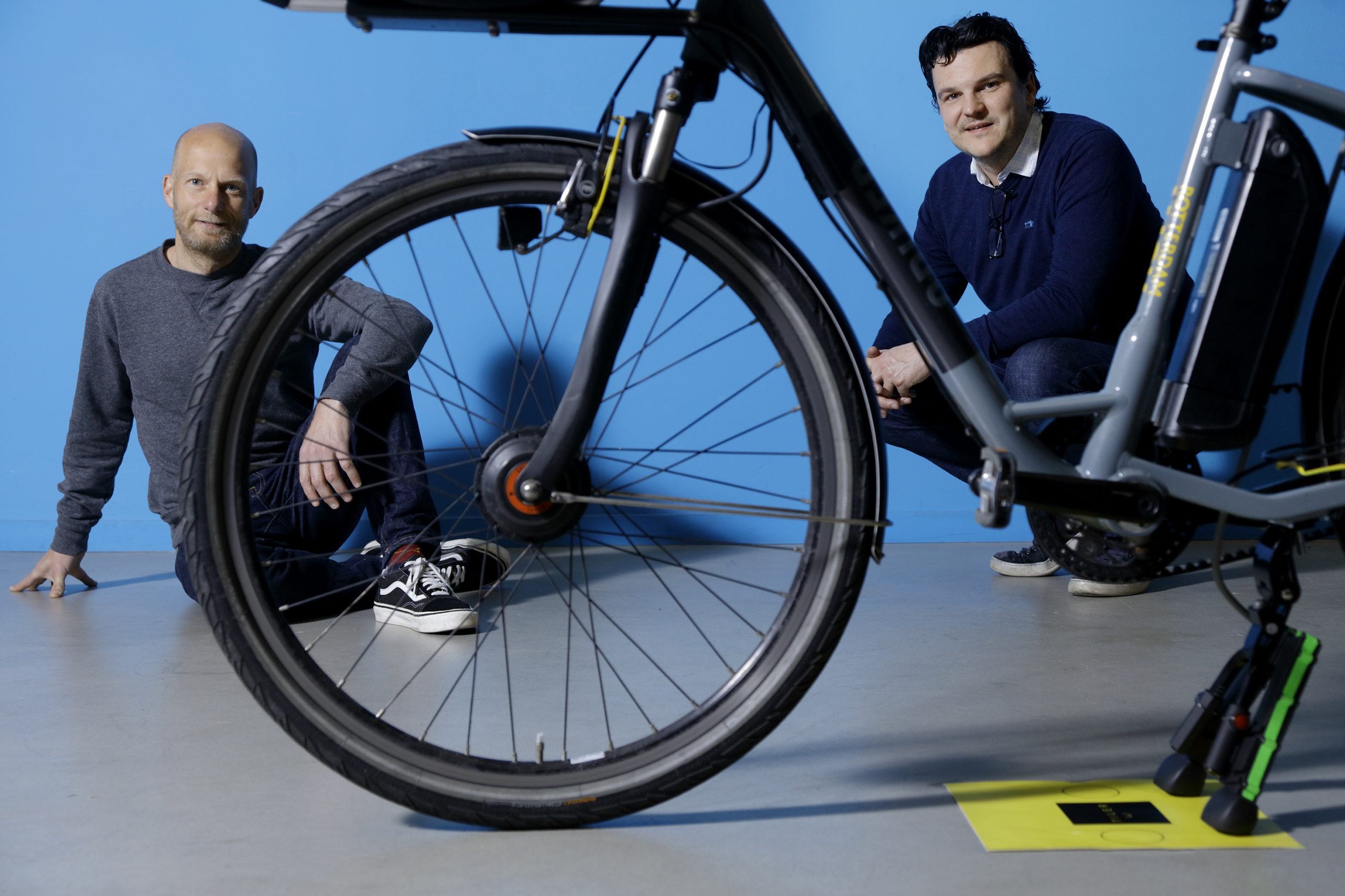How do you get a charging tile for e-bikes on the market if no one yet has a bike suitable for it? Two Rotterdam entrepreneurs know just what to do with this TU Delft patent.
According to good Rotterdam custom, Christiaan van Nispen and Olivier Coops opt for the ‘testing rather than talking’ approach. (Photo: Sam Rentmeester)
Earlier this year, start-up entrepreneurs Christiaan van Nispen and Olivier Coops received a quarter of a million euros in funding from the investment foundation Uniiq. The goal is to accelerate the product’s market uptake. Eventually, the dream is to realise a Tiler network, allowing people to charge their e-bikes wirelessly.
The technology is known as Contactless Power Transfer and was developed by researchers Pavol Bauer and Peter van Duijsen from the faculty of Electrical Engineering, Mathematics and Computer Science at Delft University of Technology. Almost ten years ago, as a PhD student, Van Bauer experimented in the lab with a rechargeable toy car above an electrical coil. Five years later, Bauer presented a charging station for electric bikes at the campus. Power was provided by solar panels, and there was the possibility of charging without a power plug.
Toothbrush
The best-known form of contactless charging is probably the electric toothbrush, which is always ready for use after a night on its charging base. With an e-bike, charging starts when the charging tile and the accompanying stand recognise each other. The coil in the special tile provides the power, which is caught by the antenna in the two-legged bicycle stand. The power transmission operates at a relatively high frequency (in the order of 100 kHz).
Testing rather than talking
Rotterdam Ahoy
However, how do you bring this technology on the market if no one is yet in the possession of a bike that is suitable for it? According to good Rotterdam custom, Christiaan van Nispen and Olivier Coops opt for the ‘testing rather than talking’ approach. They are targeting companies that are stimulating their employees to cycle more. Such bikes are fitted with a special stand, so they can be charged above the Tiler-tile when the bike is parked during the working day. Their first customer is Rotterdam Ahoy. Later this year, Tiler hopes to produce the first fifteen charging tiles and install them for pilot studies. Their target market will initially remain shared bikes at companies.
- This article appeared earlier in the 4TU Career Special, a magazine issued by Delta, Cursor (TU Eindhoven), Resource (UWageningen) en UToday (UTwente). You can read the magazine here.
Do you have a question or comment about this article?
j.w.wassink@tudelft.nl


Comments are closed.